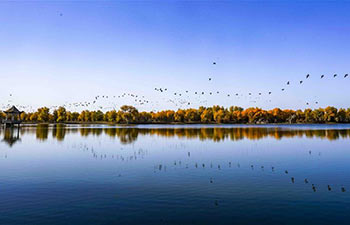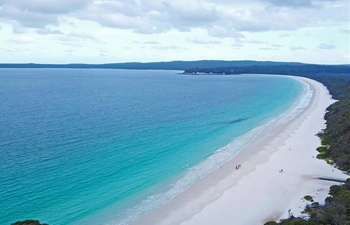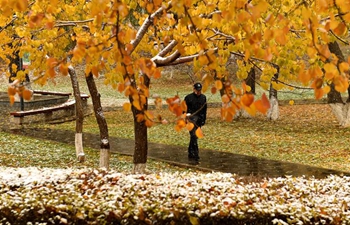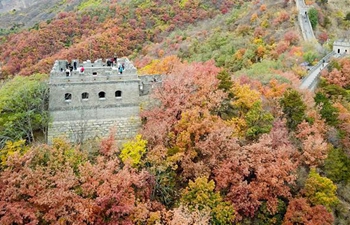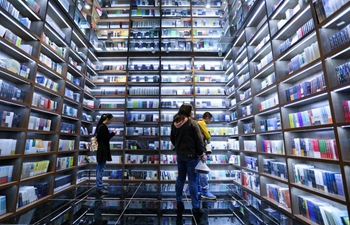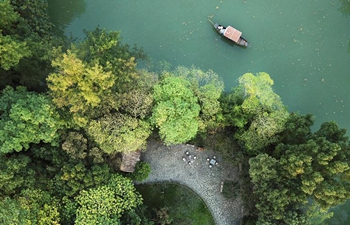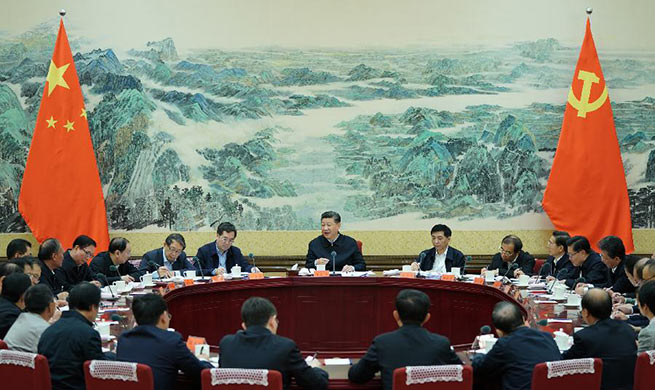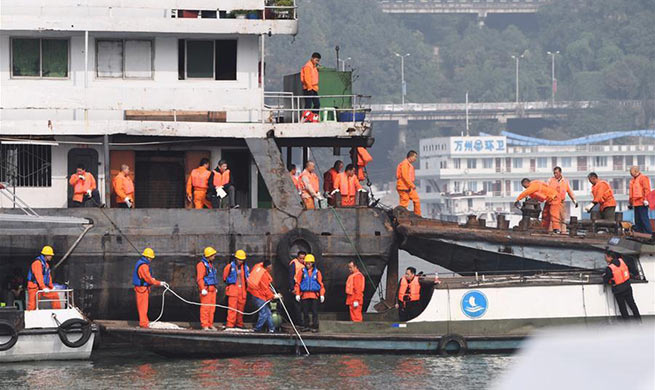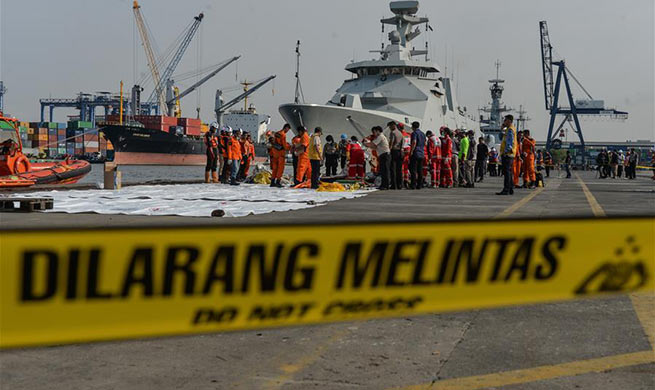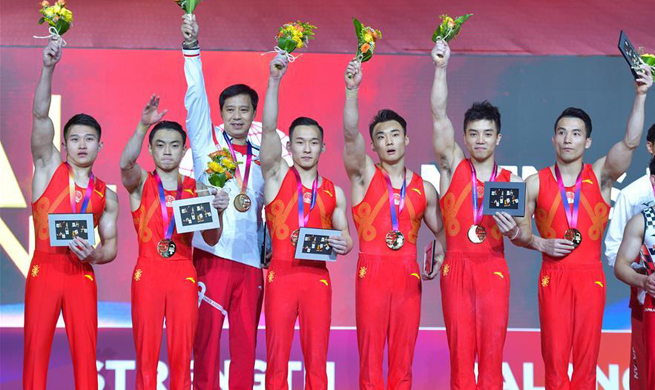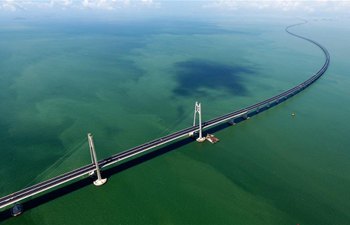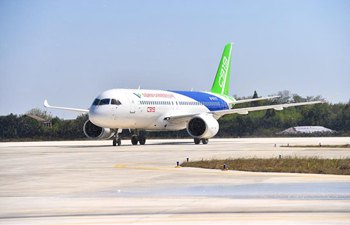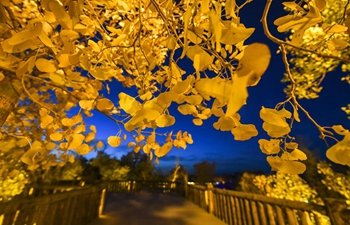HAVANA, Oct. 29 (Xinhua) -- Cuban President Miguel Diaz-Canel and his Panamanian counterpart Juan Carlos Varela pledged on Monday to increase cooperation in areas such as trade and bilateral foreign investment to expand bilateral links.
The Cuban head of state received Varela at Havana's Revolution Palace with military honors and later both leaders held talks where they reviewed cooperation in different sectors.
According to an official Cuban government release, both leaders discussed the "good state of relations between the two countries" and addressed other issues on the regional and international agenda.
"Diaz-Canel thanked Panama for supporting the Cuban resolution presented each year in the United Nations General Assembly against the U.S. economic blockade imposed nearly six decades ago," said the statement.
It also said that Cuba and Panama have developed a positive bilateral dialogue based on friendship and cooperation and will maintain their longtime political and diplomatic relations.
Previously, the Central American dignitary paid tribute to the island's national hero, Jose Marti, with a wreath-laying ceremony on Havana's Revolution Square.
During his visit to Cuba, Varela will inaugurate his country's pavilion at the 36th Havana International Trade Fair (FIHAV), an annual event where the Caribbean nation seeks to boost trade, foreign investment and commerce.
Representatives of some Panamanian companies and a free trade zone will also take part in FIHAV 2018.
The Panamanian president will also witness the signing of an agreement between the two countries' Chambers of Commerce and will visit the Center for Genetic Engineering and Biotechnology, where Cuba develops innovative drugs for the treatment of multiple diseases.
Varela's visit comes a week after his government announced the implementation of a tourist card which will allow Cubans who are private workers to travel to Panama to make purchases with a single 30-day stay permit.
In recent years, Havana and Panama City have signed agreements in areas such as trade, migration, economic cooperation, tourism, culture and sports.




